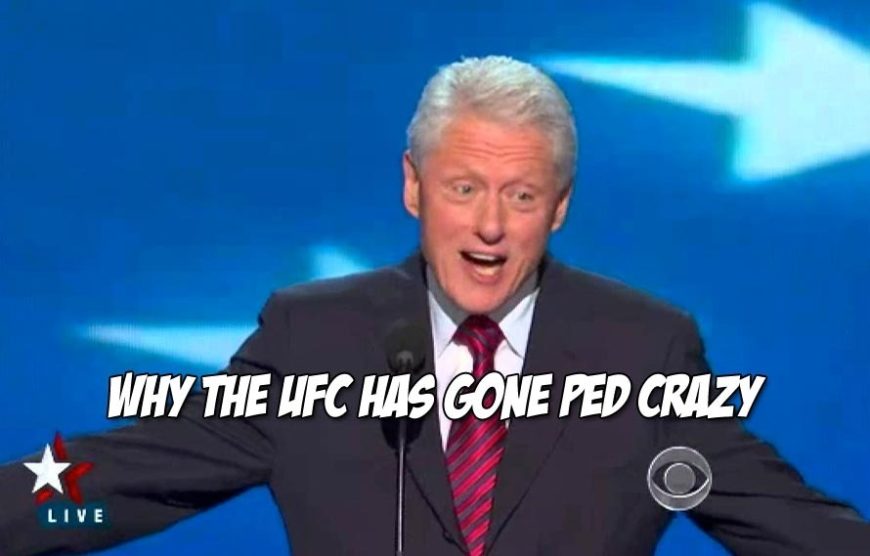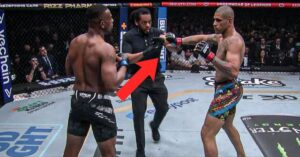My apologies to haters of Bill Clinton for this article’s title, but given the general confusion regarding why the UFC chose to institute its tough new drug testing policy, I can’t help but echo Slick Willy’s sentiments in calling for some common sense.
Here’s the bottom line: the UFC would not be going through all the trouble of commissioning the USADA and spending millions of dollars if it didn’t expect a positive return on its investment. Yes, they’ll say it’s to “protect the health of their athletes.” But while their compassion for the guys they pay to receive repeated head trauma is touching, don’t kid yourself–the UFC exists to make money, and that’s what this new policy is going to help them do, or so Dana and the Fertittas believe.
Maybe I’m merely stating the obvious, but you wouldn’t know it from some of the head-scratching going on in the MMA media, with speculation centering around everything from GSP’s potential reaction to Reebok’s influence. Now, all this is correct to a certain extent–the decision to spend this much money likely involved many factors, and wooing GSP back into the fold would certainly be good for the UFC’s coffers. Likewise, a squeaky clean image on the eve of a major endorsement deal is a nice side benefit, though Reebok has never been squeamish with their involvement in other sports where PED use is rampant.
But what the policy really targets is the UFC’s biggest problem as of late: unpredictability in fight scheduling. All big businesses thrive on forecasts; in a sense, it doesn’t matter how much you make, only that you make more than what people thought you were going to make. If the UFC loses money because they can’t book a show in New York State, their creditors will understand. But if a show is booked and then cancelled at the last minute, and that scenario is repeated many times throughout the year, that three-million dollar check to the USADA starts to look less like an impossibility and more like a bargain.
Of course, the biggest cause of fight cancellations is injuries, which the UFC can do nothing about other than having Dana plead for everyone to be careful. But they can still act to prevent the cancellations which are preventable. It certainly cost them a good chunk of the marketing that went into the Ultimate Fighter Brazil 3 when Wanderlei Silva never fought Chael Sonnen, and Vitor Belfort’s recent testosterone irregularities, which could have derailed an event already marred by drug use, probably had them spooked as well.
And there are more intangible costs to think of. Each fighter is a brand in and of themselves, and in many cases the UFC has spent a lot of money building them up over the years, only to see their investments flushed down the toilet like they were at Jon Jones’s dealer’s house during a raid.
As of today, the irregular testing performed by the state commissions encourages fighters to gamble with their careers. They must weigh the risk of getting busted against the benefit of performance enhancement–and many feel the latter is the better bet. The UFC would like to change that by instilling the idea that, right from Dana’s mouth, “If you’re using drugs, you’re going to get caught”:
Just add the unspoken: “…so please, figure out how to beat the tests now instead of ruining our premier Madison Square Garden card with three days notice.” Then you’ll have a clearer idea of why the UFC brass is willing to sit there looking so miserable in that photo up top.









